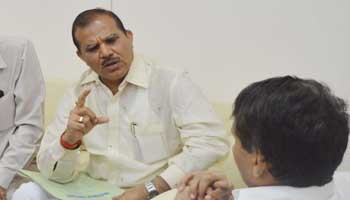Responding to the media report about the issue of diversion of NCUI’s Corpus Fund, President of National Cooperative Union of India Chandra Pal Singh Yadav agreed in principle that flouting of guidelines in such cases is not proper.
But Yadav added in the same breath that the Committee constituted to oversee the management of Corpus Fund has govt nominees as its members. “And any decision on the fund investment has therefore approval of the government in a way”, he said talking to this correspondent from Jhansi.
Readers would recall a media report has accused NCCT and NCUI of flouting the norms in managing corpus fund of Rs 340 crore. The paper says the government is considering actions against the national council for cooperative training (NCCT) management.
We cooperators are more involved with the policy matters concerning the cooperative movement, Chandra Pal added. In the seven-member Corpus Fund Committee there are three members from the government side and if one includes NCDC the number becomes four, NCUI President underlined.
The Committee consists of the NCUI President, Chief Executive and NCCT secretary – the latter as the member-secretary from the cooperative side while Financial Advisor, Central Registrar, a representative of NCDC and a government nominated Director from the Central govt side.
Earlier, the President of NCUI presided over the Committee meeting but some time ago govt had tried to authorize an officer of the rank of an Additional Secretary to preside over it – a move that that had cooperators up in arms.
Cooperators in general feel that flouting of guidelines is not correct but the committee is not headed by a single person and the govt has a dominant voice owing to its number. As it is always a consensus view that finally emerges, singling out NCCT-NCUI is not fair, they argued.
“Another thing that makes one wonder if the organization loses money or gains it. Here is a case where the NCUI did not lose money, instead made money by investing in instruments that yielded it higher returns compared to the lackluster FD rates”, argue cooperators connected with NCUI.
This argument has also won the support of the NCUI President who said after all the entire committee thought something with the intention of maximizing the earnings and obviously there no hanky-panky involved in this case.
Readers would recall the Nafed case when money was invested to buy MF Hussen’s paintings – a matter still being treated as an issue by the media. PNB Housing and Kerala in this case are govt business houses sound in terms of finances and management.
